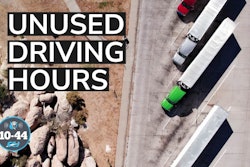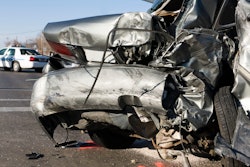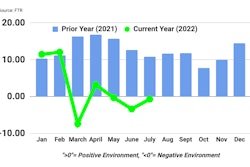Natural disasters are very hindsight things; "We should have done X," and "I wish we'd have Y."
While they catch very few people by surprise, in almost every case you can't adequately prepare for most of them. In the best of cases all you can do is learn from going through one and apply that knowledge to the next one.
When I was a senior in high school, an F5 tornado blew through and around my hometown. We knew it could get bad. The weather forecast was pretty bleak. School dismissed early and the likelihood of tornadoes in Alabama in the spring is always closer to probable than it is to probably not. But a 31-mile-long, three-quarter of a mile wide tornado wasn't at the forefront of any of our minds. It killed 32 people, some of them my classmates. In 2011, another major tornado took a similar path and nearly pushed the entire City of Pleasant Grove off the map.
A tornado forecast in Alabama used to be white noise on television. What I learned from 1998 to 2011 was when the weather person said "tornado," pay attention. Whether it's an F0 or an F5, it's bad news. But other than just knowing what's going on, it's key to have a response plan. Sheltering in place is critical for your personal safety, but what do you do when you emerge from your bunker and you don't have power, running water, or any semblance of a place to live?
Florida is no stranger to hurricanes. More storms hit Florida than any other state in the U.S., yet when Hurricane Ian cut a swath through there was really no way to mitigate it or prepare for it in the physical sense, other than to get out of its way.
At the business level, a business continuity plan is a critical piece of your operations that should spell out protocols for every possible natural disaster.
The Covid pandemic was a Baptism by fire. In December 2019, how many of your co-workers worked from home? How many just four months later? Few businesses had any rules or regulations in place on how to move entire office complexes of people into multiple homes in various cities and still have them work cohesively, and it all had to happen in a matter of days. It was an exercise of building the airplane while you're flying it.
[Related: Hurricane season brings carriers’ disaster preparedness plans into focus]
Sure. It's difficult to know all the ways you want to respond to a major structure fire, for example, if you've never been through one. You can ask any business that's suffered a fire and ask them, "what do you know now that you wish you knew then?"
Think about your operations-critical functions and how those might be impacted in the event of a total-loss event. How does a fleet communicate with its drivers when its comms platform is rendered to ashes? Are all your important business documents – including customer contacts, contracts and invoices – located on site? What happens when those burn up? A total-loss fire is just that: a total loss. How do you plan to operate your business when there's barely anything left of it in the physical sense?
It's important to have a "just in case plan," and if you ever have to use it, evaluate it and decide what parts worked well, what parts didn't, and what parts were total oversights. It should be a living document. It's never going to be perfect but a less-than-perfect plan is better than no plan at all.
A business continuity plan isn't going to mitigate the physical effects of a near-Category 5 hurricane. Roofs are still going to be blown off. Windows are going to be broken, trees topped, roads closed and there's going to be flood damage. But what it can do is help you move operations a few days in advance; allow employees to scatter to safer parts of the state sooner, while still being able to support the business remotely; and enable the business to get back on its feet more quickly than it would otherwise because, once everything is settled, everyone is going to need their jobs.
Many of us were fortunate that we were able to watch the events of Ian play out from hundreds or thousands of miles away, but there's an opportunity to learn from its carnage regardless of where you watched it blow through.
I've never had to test my tornado plan, which mostly consists of fueling up our vehicles in advance; making sure I have enough bottled water and non-perishable food handy to cover us for a couple days; checking that all our external cell phone battery chargers are fully charged; and all the batteries in the flashlights are charged. Of note: I've never tested the plan, but I have deployed it a few times.
We're all just a flash flood, structure fire, tornado, hurricane or earthquake away from being in this very scenario, and if you're watching a storm batter half of an entire state and not wondering, "what would I do if..." then you're truly playing with fire.










